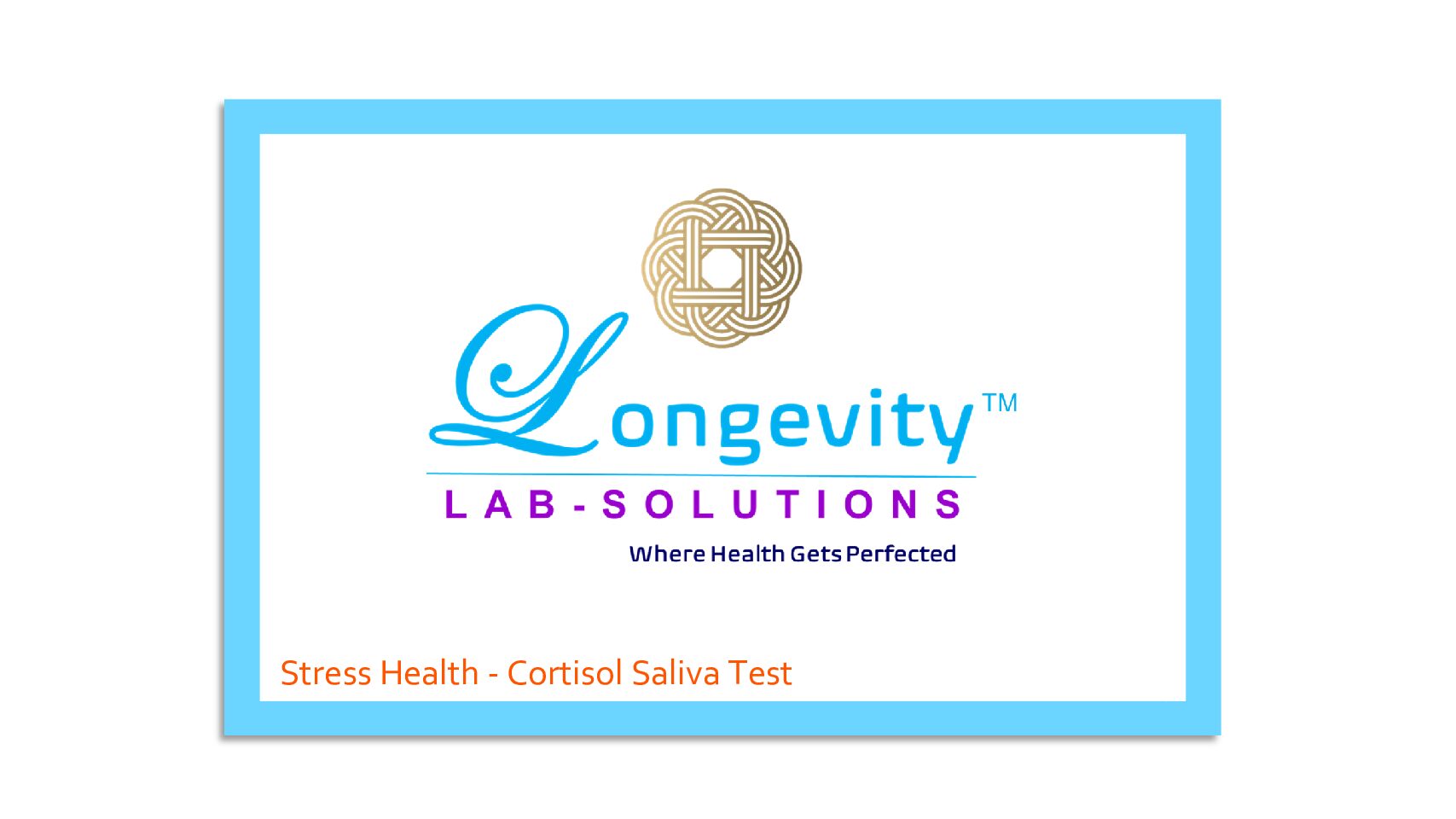Weight Loss Blood Test
$229.00
Weight loss refers to the process of reducing body weight, typically by reducing body fat. It can be achieved through a combination of healthy eating, regular physical activity, and adopting a sustainable lifestyle. Certain blood tests can provide valuable information related to factors that may affect weight loss or reflect changes in your body due to weight loss efforts. A blood test alone is not typically used to directly measure or determine weight loss.
Analytes in this test: 64 Total Analytes:- Complete Metabolic Panel, CMP (18 analytes), Complete Blood Count, CBC (21 analytes), Lipid Panel (6 analytes), CRP-HS, Ferritin, GGT, HbA1C, Hormone Panel (7 analytes), Iron, LDH, Thyroid Panel (3 analytes), Phosphorous, Uric Acid.
Description
About the Test
There is no specific “weight loss blood test” that provides a comprehensive assessment of weight loss progress or success. However, several blood tests can be helpful in evaluating various aspects related to weight loss and overall health. These tests may include:
- Complete blood count (CBC)
- Comprehensive metabolic panel (CMP)
- Lipid panel
- Thyroid panel
- HbA1c
- Inflammatory markers
- Hormone levels
It’s important to note that the specific blood tests recommended may vary based on an individual’s medical history, health goals, and the guidance of a healthcare professional. These tests can provide insights into overall health and potential factors that may affect weight loss efforts. Working with a healthcare professional, such as a primary care physician or registered dietitian, can help determine which tests are most appropriate for your specific situation and weight loss journey.
General Tips For Healthy Weight Loss
Weight loss refers to the process of reducing body weight, typically by reducing body fat. It can be achieved through a combination of healthy eating, regular physical activity, and adopting a sustainable lifestyle.
Here are some general tips for healthy weight loss:
-
Set realistic goals: Aim for gradual and sustainable weight loss of 1-2 pounds per week. Rapid weight loss can be unhealthy and difficult to maintain.
-
Balanced diet: Focus on consuming a balanced diet that includes a variety of nutrient-dense foods. Incorporate fruits, vegetables, whole grains, lean proteins, and healthy fats into your meals. Limit the intake of processed foods, sugary beverages, and high-fat snacks.
-
Portion control: Be mindful of portion sizes and avoid overeating. Use smaller plates, measure your food, and listen to your body’s hunger and fullness cues.
-
Regular physical activity: Engage in regular exercise to burn calories and improve overall fitness. Aim for a combination of cardiovascular exercises (such as walking, jogging, or cycling) and strength training exercises (such as weightlifting or bodyweight exercises) to build muscle and boost metabolism.
-
Stay hydrated: Drink plenty of water throughout the day. Sometimes, thirst can be mistaken for hunger, so staying hydrated may help control unnecessary snacking.
-
Get adequate sleep: Aim for 7-8 hours of quality sleep each night. Lack of sleep can affect hormones related to hunger and satiety, leading to increased appetite and potential weight gain.
-
Monitor your progress: Keep track of your food intake, exercise routines, and weight loss progress. This can help you stay motivated and make adjustments if needed.
Remember, weight loss should be approached in a healthy and sustainable manner. It’s important to consult with a healthcare professional or a registered dietitian for personalized advice and guidance based on your specific needs and health conditions.
Analytes Tested
64 Analytes
- ALBUMIN
- ALBUMIN/GLOBULIN CALCULATED
- ALKALINE PHOSPHOTASE
- ALT
- AST
- BASO#
- BASO%
- BILIRUBIN DIRECT
- BILIRUBIN TOTAL
- BUN
- BUN/CREAT CALCULATED
- CALCIUM
- CARBON DIOXIDE
- CHLORIDE
- CHOLESTEROL/HDL CALCULATED
- CHOLESTEROL (TOTAL)
- CORTISOL
- CREATININE
- CRP
- DHEA-S
- EGFR
- EO#
- EO%
- ESTRADIOL
- FERRITIN
- FREE T3
- FREE T4
- GGT
- GLOBULIN CALCULATED
- GLUCOSE
- HBA1C
- HCT
- HDL
- HGB
- INSULIN
- IRON
- LDH
- LYMPH#
- LYMPH%
- MCH
- MCHC
- MCV
- MONO#
- MONO%
- MPV
- NEUT#
- NEUT%
- PHOSPHOROUS
- PLT
- POTASSIUM
- PROGESTERONE
- PROTEIN, TOTAL
- RBC
- RDW
- RDW-SD
- SODIUM
- TESTOSTERONE
- TESTOSTERONE, FREE
- TRIGLYCERIDES
- TSH
- URIC ACID
- VITAMIN D
- VLDL CALCULATED
- WBC
Complete Blood Count (CBC)
A Complete Blood Count (CBC) is a blood test that measures different components of the blood, including red blood cells, white blood cells, platelets, hemoglobin, and hematocrit. It is used to assess overall health and screen for a wide range of medical conditions, including anemia, infection, inflammation, bleeding disorders, and cancer. The results of a CBC can provide important information about a person’s health and help guide further diagnostic testing or treatment.
Complete Metabolic Panel (CMP)
CMP stands for Comprehensive Metabolic Panel. It is a blood test that provides information about various aspects of your body’s metabolism and organ function. The CMP typically includes the following components:
-
Blood glucose (sugar) level: This measures the amount of glucose in your blood and helps evaluate your blood sugar control.
-
Electrolytes: This includes measurements of sodium, potassium, and chloride levels, which are important for maintaining fluid balance, nerve function, and muscle function.
-
Kidney function markers:
- Blood urea nitrogen (BUN): This measures the amount of nitrogen in the blood that comes from the waste product urea. Elevated BUN levels may indicate kidney dysfunction or dehydration.
- Creatinine: Creatinine is a waste product produced by muscles. Elevated levels can indicate kidney problems.
-
Liver function markers:
- Alanine transaminase (ALT) and aspartate transaminase (AST): These enzymes are found in liver cells and are released into the bloodstream when there is liver damage or injury.
- Alkaline phosphatase (ALP): ALP is an enzyme found in various tissues, including the liver, bones, and intestines. Elevated levels may indicate liver or bone-related conditions.
- Bilirubin: Bilirubin is a yellow pigment produced during the breakdown of red blood cells. Elevated levels can indicate liver or gallbladder issues.
-
Protein levels:
- Total protein: This measures the total amount of proteins in your blood.
- Albumin: Albumin is the most abundant protein in the blood and helps maintain fluid balance.
- Globulin: Globulins are a group of proteins involved in various functions, such as immune response and blood clotting.
-
Calcium level: This measures the amount of calcium in your blood, which is essential for bone health and other physiological processes.
The CMP provides valuable information about your overall metabolic health, liver function, kidney function, and electrolyte balance. It can help detect potential abnormalities or monitor the effectiveness of treatments.
Your healthcare provider will interpret the results in conjunction with your medical history and other diagnostic tests to guide appropriate medical care.
C-Reactive Protein, HS (CRP-HS)
CRP hs stands for high-sensitivity C-reactive protein (hs-CRP). It is a blood test that measures the levels of C-reactive protein, a marker of inflammation, in the body. The hs-CRP test is more sensitive than the standard CRP test and can detect lower levels of C-reactive protein.
CRP is produced by the liver in response to inflammation, and elevated levels of hs-CRP can indicate the presence of systemic inflammation in the body. The hs-CRP test is often used to assess the risk of cardiovascular disease, as chronic inflammation is considered a contributing factor to the development and progression of heart disease.
While hs-CRP is not directly associated with weight loss, weight loss can have an impact on inflammation and hs-CRP levels. Losing weight, particularly through a healthy and balanced lifestyle, can help reduce chronic inflammation in the body, leading to a decrease in hs-CRP levels over time.
Weight loss can potentially lower hs-CRP levels through the following mechanisms:
-
Reduced adipose tissue: Excess fat tissue, particularly visceral fat (fat around the abdominal organs), is associated with increased inflammation. Weight loss can lead to a decrease in adipose tissue, resulting in a reduction in inflammatory markers, including hs-CRP.
-
Lifestyle changes: Weight loss is often accompanied by adopting healthier eating patterns, regular physical activity, and other lifestyle modifications. These changes can contribute to overall reduced inflammation and hs-CRP levels.
-
It’s important to note that the impact of weight loss on hs-CRP levels may vary among individuals, and other factors such as genetics, underlying medical conditions, and lifestyle habits can influence hs-CRP levels as well.
If you have concerns about your hs-CRP levels or are considering weight loss, it’s recommended to consult with a healthcare professional. They can evaluate your individual situation, interpret your hs-CRP results in the context of your overall health, and provide guidance on weight loss strategies and monitoring to optimize your cardiovascular health.
Cortisol
Cortisol, a hormone produced by the adrenal glands in response to stress, does not directly cause weight loss. However, cortisol levels and the body’s stress response can indirectly affect weight loss efforts. Here are some key points regarding cortisol and weight loss:
-
Appetite and cravings: Cortisol can influence appetite and food cravings, particularly for high-calorie and high-carbohydrate foods. During times of stress, cortisol can increase hunger and lead to overeating or emotional eating, which can hinder weight loss efforts. Managing stress and finding healthy coping mechanisms can help prevent stress-related overeating.
-
Fat storage and distribution: Chronic elevation of cortisol levels, often associated with chronic stress, has been linked to increased fat storage, particularly in the abdominal area. This type of fat distribution, known as visceral fat, is associated with a higher risk of metabolic disorders and cardiovascular disease. Losing weight, especially through a combination of healthy eating and regular exercise, can help reduce visceral fat.
-
Metabolism and muscle mass: Cortisol can affect metabolism and muscle mass. Chronically elevated cortisol levels can lead to muscle breakdown and a decrease in muscle mass, which can lower the metabolic rate. It’s important to engage in regular exercise, including strength training, to preserve and build muscle mass, which can support a healthy metabolism and weight loss.
- Sleep and cortisol: Lack of sleep or poor sleep quality can lead to elevated cortisol levels. Sleep deprivation or disrupted sleep patterns can contribute to weight gain or difficulty losing weight. Prioritizing healthy sleep habits, such as getting adequate sleep duration and improving sleep quality, can help regulate cortisol levels and support weight management.
It’s important to note that cortisol is just one piece of the weight loss puzzle, and weight management involves a combination of factors, including diet, exercise, overall lifestyle, and individual factors. If you have concerns about cortisol levels or are considering weight loss, it’s recommended to consult with a healthcare professional or a registered dietitian. They can assess your individual situation, provide personalized guidance, and discuss any hormonal considerations that may impact your weight loss journey.
Estradiol
Estradiol is a type of estrogen hormone and a primary female sex hormone. It plays a crucial role in the development and regulation of the female reproductive system. While estradiol itself does not directly cause weight loss, it can have indirect effects on body weight and body composition. Here are a few key points regarding estradiol and weight loss:
-
Metabolism: Estradiol can influence metabolism and energy expenditure. It has been suggested that lower levels of estradiol, such as during menopause, may contribute to a slower metabolic rate. This could potentially make weight loss more challenging. However, it’s important to note that weight loss is influenced by a combination of factors, including diet, physical activity, overall health, and individual metabolism.
-
Body composition: Estradiol levels can influence body composition, including fat distribution. Higher levels of estradiol are associated with a more feminine pattern of fat deposition, with more fat stored in the hips and thighs. Changes in estradiol levels, such as during menopause, may lead to a shift in fat distribution, with more fat accumulating around the abdomen. This change in fat distribution can impact weight management and body shape.
-
Hunger and food intake: Estradiol can influence appetite regulation and food intake. Fluctuations in estradiol levels during the menstrual cycle can affect hunger and cravings. Lower estradiol levels, such as during certain phases of the menstrual cycle or during menopause, may lead to increased appetite and a tendency to consume more calories. Managing food intake and choosing nutritious foods can still support weight loss efforts despite these hormonal influences.
It’s important to note that weight management is a complex process influenced by various factors, including genetics, lifestyle, and overall health. If you have concerns about estradiol levels or are considering weight loss, it’s recommended to consult with a healthcare professional, such as a gynecologist or endocrinologist. They can assess your individual situation, provide personalized guidance, and discuss any hormonal considerations that may impact your weight loss journey.
DHEA-S
DHEA-S (dehydroepiandrosterone sulfate) is a hormone produced by the adrenal glands. It is a precursor hormone that can be converted into other hormones, including testosterone and estrogen. While DHEA-S itself does not directly cause weight loss, it can have indirect effects on body weight and body composition. Here are a few key points regarding DHEA-S and weight loss:
-
Metabolism: DHEA-S can influence metabolism and energy expenditure. Studies suggest that higher levels of DHEA-S may be associated with increased metabolic rate, which can potentially contribute to weight management. However, the impact of DHEA-S on metabolism and weight loss is generally considered to be modest.
-
Body composition: DHEA-S levels can influence body composition, including fat distribution and lean muscle mass. Higher levels of DHEA-S have been associated with a more favorable body composition, with lower body fat percentage and increased muscle mass. Changes in DHEA-S levels, whether due to natural variations or supplementation, may impact body composition and potentially support weight loss efforts.
-
Hormonal balance: Maintaining a healthy hormonal balance, including appropriate levels of DHEA-S, is important for overall health and well-being. Hormonal imbalances can affect metabolism, energy levels, and body composition. However, the impact of DHEA-S on weight loss is likely to be influenced by other factors as well.
-
Individual variations: The relationship between DHEA-S levels and weight loss can vary among individuals. It’s important to consider other factors, such as overall health, lifestyle, diet, and exercise habits, as they play significant roles in weight management.
It’s worth noting that DHEA-S supplementation is not recommended for weight loss purposes unless specifically prescribed by a healthcare professional. The long-term effects and safety of DHEA-S supplementation are still being studied, and it should be used under professional guidance.
If you have concerns about DHEA-S levels or are considering weight loss, it’s recommended to consult with a healthcare professional, such as an endocrinologist or a registered dietitian. They can assess your individual situation, provide personalized guidance, and discuss any hormonal considerations that may impact your weight loss journey.
Ferritin
Ferritin is a protein that stores iron in your body. It is primarily found in cells, especially those of the liver, spleen, and bone marrow. Ferritin levels can be measured through a blood test and are often used to assess iron stores in the body.
Weight loss itself does not directly affect ferritin levels. However, there can be an indirect relationship between ferritin and weight loss due to the following reasons:
-
Iron deficiency: In some cases, weight loss can be associated with inadequate nutrient intake, including iron. Iron deficiency can lead to low ferritin levels in the body. Iron is essential for the production of hemoglobin, which carries oxygen to cells. When iron stores are low, it can result in symptoms such as fatigue and weakness, which may affect energy levels and physical activity, potentially contributing to weight loss.
-
Inflammation: Weight loss can sometimes be accompanied by inflammation in the body. Inflammatory conditions can affect iron metabolism and lead to changes in ferritin levels. Elevated inflammation markers, such as C-reactive protein (CRP), can be associated with decreased ferritin levels.
It’s important to note that low ferritin levels can have various causes, including iron deficiency, chronic diseases, genetic disorders, and certain medications. Therefore, it’s crucial to consult with a healthcare professional for a proper evaluation if you have concerns about your ferritin levels or experience unexplained weight loss.
If iron deficiency or low ferritin levels are identified as a contributing factor to weight loss, your healthcare provider may recommend iron supplementation or dietary modifications to restore iron levels and support overall health.
GGT
GGT stands for Gamma-Glutamyl Transferase. It is an enzyme found in various tissues in the body, with the highest concentrations found in the liver. A blood test measuring GGT levels is commonly used to assess liver function and diagnose liver diseases.
While GGT levels are often used to assess liver function, there isn’t a direct relationship between GGT and weight loss.
However, weight loss can indirectly affect GGT levels through the following mechanisms:
-
Liver health improvement: Weight loss, particularly in individuals with non-alcoholic fatty liver disease (NAFLD) or obesity-related liver conditions, can lead to improvements in liver health. As liver health improves, GGT levels may decrease.
-
Reduced inflammation: Weight loss can reduce systemic inflammation, including inflammation in the liver. Lower levels of inflammation can positively impact liver function and GGT levels.
-
Lifestyle changes: Weight loss is often accompanied by lifestyle modifications such as adopting a healthier diet and increasing physical activity. These changes can contribute to improved liver health and potentially lead to lower GGT levels.
It’s important to note that GGT levels are influenced by various factors, including alcohol consumption, certain medications, and other medical conditions. Therefore, weight loss alone may not be the sole determinant of GGT levels.
If you have concerns about your GGT levels or are considering weight loss, it’s recommended to consult with a healthcare professional. They can evaluate your individual situation, interpret your GGT results in the context of your overall health, and provide appropriate guidance and monitoring specific to your needs.
HbA1C
A1c (also known as HbA1c) is a blood test that provides an average estimate of a person’s blood glucose levels over the past two to three months. It is primarily used to monitor long-term blood sugar control in individuals with diabetes.
Weight loss can have an impact on A1c levels, especially in individuals with diabetes or prediabetes. Here are a few ways weight loss can influence A1c levels:
-
Improved insulin sensitivity: Excess weight, particularly abdominal fat, can contribute to insulin resistance, a condition in which the body’s cells become less responsive to insulin. When insulin resistance improves, as often occurs with weight loss, the body can use insulin more effectively to regulate blood sugar levels, leading to lower A1c levels.
-
Reduced glucose production: Excess weight can lead to increased glucose production in the liver, contributing to elevated blood sugar levels. Weight loss can help reduce liver fat and decrease glucose production, resulting in better blood sugar control and lower A1c levels.
-
Medication adjustments: If weight loss leads to improved blood sugar control, individuals with diabetes may require adjustments in their diabetes medications, including insulin or oral medications. Lowering the medication dosage or even discontinuing certain medications can help prevent low blood sugar episodes (hypoglycemia) as weight loss progresses.
-
Lifestyle changes: Weight loss is often accompanied by lifestyle modifications such as adopting a healthier diet and increasing physical activity. These changes can contribute to overall better blood sugar control, leading to lower A1c levels.
It’s important to note that weight loss and its impact on A1c levels may vary among individuals. It’s recommended to work closely with a healthcare professional, such as a registered dietitian or an endocrinologist, who can provide personalized guidance and monitoring based on your specific circumstances and medical history.
If you have diabetes or prediabetes and are considering weight loss, it’s crucial to approach it in a gradual, sustainable manner. Seek professional advice to develop a comprehensive plan that includes a balanced diet, regular physical activity, and regular monitoring of blood sugar levels and A1c to ensure safe and effective weight loss while maintaining overall health.
Insulin
Insulin plays a significant role in regulating blood sugar levels and metabolism in the body. While insulin itself does not directly cause weight loss, it can influence weight management and impact the body’s response to weight loss efforts. Here’s how insulin relates to weight loss:
-
Fat storage: Insulin is responsible for facilitating the uptake of glucose from the bloodstream into cells, including fat cells. When insulin levels are elevated, it promotes the storage of excess glucose as fat. Therefore, high insulin levels can contribute to weight gain and make it more challenging to lose weight.
-
Fat metabolism: Insulin also inhibits the breakdown of stored fat (lipolysis) in adipose tissue. When insulin levels are elevated, it can prevent the body from efficiently accessing and utilizing stored fat for energy. This can make it more difficult to lose weight, particularly in individuals with insulin resistance or type 2 diabetes.
-
Blood sugar control: Insulin helps regulate blood sugar levels by promoting the uptake of glucose into cells, particularly muscle cells. When blood sugar levels are stable, it can help reduce cravings and control hunger, making it easier to adhere to a healthy eating plan and maintain a calorie deficit for weight loss.
-
Insulin sensitivity: Insulin sensitivity refers to how effectively your cells respond to insulin. Individuals with insulin resistance have reduced sensitivity to insulin, requiring higher levels of insulin to achieve the same effects. Insulin resistance is commonly associated with obesity and can make weight loss more challenging. However, weight loss itself can improve insulin sensitivity, leading to better blood sugar control and overall metabolic health.
-
Medications: Some medications used to treat diabetes, such as certain types of insulin and insulin secretagogues, can cause weight gain or make weight loss more difficult. If you are taking diabetes medications, it’s important to work closely with your healthcare provider to adjust your medication regimen as needed during weight loss efforts.
When it comes to weight loss, it’s important to focus on a comprehensive approach that includes a healthy diet, regular physical activity, and lifestyle modifications. Achieving a balanced and sustainable weight loss requires individualized strategies based on your specific health needs and goals. It’s recommended to consult with a healthcare professional or a registered dietitian who can provide personalized guidance and support throughout your weight loss journey, particularly if you have diabetes or insulin resistance
Iron
Iron is a mineral that is essential for many of the body’s functions, including the production of hemoglobin, a protein in red blood cells that carries oxygen to the body’s tissues. Iron also helps to support the immune system and plays a role in energy metabolism. A lack of iron can result in iron-deficiency anemia, a condition characterized by a decrease in the number of red blood cells or a decrease in the amount of hemoglobin. Iron can be obtained through dietary sources such as meat, poultry, fish, beans, as well as dietary supplements. Blood tests that measure iron levels, such as a Complete Blood Count (CBC) and iron studies, are used to diagnose iron-deficiency anemia and monitor treatment. Overloading on iron can also be harmful, so it is important to maintain appropriate iron levels through diet and supplements under the guidance of a healthcare provider.
Iron plays a role in several metabolic processes in the body, including energy production and metabolism. However, it’s important to note that while iron is involved in these processes, it does not directly cause weight loss. Weight loss is primarily influenced by an imbalance between calorie intake and calorie expenditure.
That being said, there can be some indirect connections between iron and weight loss:
-
Iron deficiency: Iron deficiency can lead to a condition called anemia, which is characterized by a decrease in the number of red blood cells or a decrease in hemoglobin levels. Anemia can result in fatigue, weakness, and decreased exercise tolerance, which may indirectly impact weight loss efforts by reducing overall activity levels and decreasing the ability to engage in physical activity.
-
Restoring iron levels: If iron deficiency is present and is causing symptoms such as fatigue, addressing the deficiency through iron supplementation or dietary changes can help improve energy levels and potentially support weight loss efforts indirectly by enabling increased activity levels and physical performance.
It’s important to note that while iron deficiency can have an impact on energy levels and physical activity, it’s not the sole determinant of weight loss. Sustainable weight loss involves adopting a balanced and healthy lifestyle that includes a nutritious diet, regular physical activity, and overall calorie control.
If you suspect iron deficiency or have concerns about your iron levels in relation to weight loss, it’s recommended to consult with a healthcare professional. They can evaluate your symptoms, perform appropriate tests, and provide personalized guidance based on your individual situation.
LDH
LDH stands for Lactate Dehydrogenase. It is an enzyme found in various tissues of the body, including the heart, liver, kidneys, muscles, and red blood cells. An LDH blood test measures the levels of this enzyme in the bloodstream.
LDH levels can be used as a general indicator of tissue damage or disease, but it is not specific to any particular condition. Elevated LDH levels can be observed in various circumstances, including:
-
Tissue damage: When there is tissue damage or injury, such as in heart attacks, liver diseases, kidney diseases, muscle injuries, or infections, LDH is released into the bloodstream, resulting in increased LDH levels.
-
Hemolysis: In conditions where there is excessive breakdown of red blood cells, such as hemolytic anemia or transfusion reactions, LDH levels can be elevated.
-
Cancers: Certain types of cancers, including lymphoma, leukemia, and lung cancer, can lead to increased LDH levels due to the rapid growth and destruction of cancer cells.
-
Other conditions: LDH levels can also be elevated in conditions like infectious mononucleosis, pancreatitis, and autoimmune diseases.
Weight loss itself can impact certain laboratory values and health markers, but it does not have a direct effect on LDH levels. However, weight loss can indirectly affect LDH levels in certain situations:
-
Reduction in tissue inflammation: Weight loss, especially through adopting a healthier lifestyle, can lead to a decrease in overall inflammation in the body. Lower levels of inflammation can positively influence tissue health and potentially affect LDH levels.
-
Improvement in certain medical conditions: If weight loss occurs in the context of resolving or managing specific medical conditions that may be associated with elevated LDH levels, such as certain cancers or liver diseases, LDH levels may improve as a result of addressing the underlying condition.
It’s important to note that LDH levels alone are not diagnostic and are not specific to weight loss and should be interpreted alongside other clinical findings and additional tests to determine their significance in your specific situation.
If you have concerns about your LDH levels or are undergoing weight loss, it’s recommended to consult with a healthcare professional. They can evaluate your overall health, interpret your laboratory results, and provide personalized guidance based on your individual circumstances.
Lipid Panel
A lipid panel, also known as a lipid profile or lipid panel test, is a blood test that measures various types of fats (lipids) in your bloodstream. It provides information about your cholesterol levels and helps assess your risk for cardiovascular diseases such as heart disease and stroke. A standard lipid panel typically includes the following components:
-
Total cholesterol: This measures the total amount of cholesterol in your blood, including both high-density lipoprotein (HDL) cholesterol and low-density lipoprotein (LDL) cholesterol.
-
HDL cholesterol: HDL is often referred to as “good” cholesterol because it helps remove LDL cholesterol from your arteries and carries it back to the liver for processing.
-
LDL cholesterol: LDL is often referred to as “bad” cholesterol because high levels can contribute to the buildup of plaque in your arteries, increasing the risk of heart disease.
-
Triglycerides: Triglycerides are a type of fat found in your blood. High levels of triglycerides are associated with an increased risk of cardiovascular disease.
Phosphorus
Phosphorus is an essential mineral that plays a vital role in various bodily functions, including bone health, energy metabolism, and cell signaling. While phosphorus levels can be influenced by dietary intake, weight loss itself does not have a direct effect on phosphorus levels in the body.
However, certain factors related to weight loss can indirectly impact phosphorus levels:
-
Dietary changes: During weight loss efforts, individuals may modify their eating habits, including the types and amounts of food consumed. Phosphorus is found in a wide range of foods, particularly in protein-rich sources such as meat, dairy products, legumes, and nuts. Alterations in dietary patterns during weight loss can affect phosphorus intake, but it’s important to maintain a balanced diet that meets nutrient requirements, including phosphorus.
-
Exercise and physical activity: Weight loss is often accompanied by increased physical activity levels. Intense or prolonged exercise can lead to increased phosphorus utilization as it plays a role in energy metabolism and muscle function. However, the impact on overall phosphorus levels is typically minimal and can be compensated by a healthy diet.
-
Metabolic changes: Weight loss can influence various metabolic processes in the body. While there may be alterations in certain electrolyte balances, such as sodium and potassium, phosphorus levels are generally well-maintained within the body’s homeostasis, even during weight loss.
It’s worth noting that significant disturbances in phosphorus levels are more commonly observed in specific medical conditions such as kidney disease, certain hormonal disorders, or excessive use of certain medications. In such cases, it’s important to work closely with a healthcare professional who can monitor and manage phosphorus levels as part of overall medical care.
If you have concerns about your phosphorus levels or are considering weight loss, it’s recommended to consult with a healthcare professional or a registered dietitian. They can evaluate your specific situation, assess nutrient needs, and provide guidance on maintaining a balanced diet that supports healthy weight loss while meeting your phosphorus requirements.
Progesterone
Progesterone is a hormone that plays a crucial role in the menstrual cycle and pregnancy. While progesterone itself does not directly cause weight loss, it can have indirect effects on body weight and metabolism. Here are a few key points regarding progesterone and weight loss:
-
Metabolism: Progesterone can influence metabolism and energy expenditure. It has been suggested that progesterone may have a slight thermogenic effect, which means it may increase the body’s calorie expenditure. However, the impact of progesterone on metabolism and weight loss is generally considered to be modest.
-
Water retention: Progesterone can cause water retention or bloating in some individuals. This may temporarily affect body weight and make it appear as though weight loss is slower or weight gain is occurring. It’s important to note that this water retention is usually temporary and does not reflect actual fat gain or loss.
-
Appetite and cravings: Progesterone can influence appetite and food cravings, particularly during the menstrual cycle. Some women may experience increased appetite or cravings for specific foods during the luteal phase, which is the phase of the menstrual cycle when progesterone levels are higher. Managing food intake and making nutritious choices can still support weight loss efforts despite these hormonal influences.
-
Hormonal balance: Maintaining a healthy hormonal balance, including adequate levels of progesterone, is important for overall health. Hormonal imbalances, such as low progesterone levels, can affect metabolism, mood, and energy levels. Addressing any underlying hormonal issues through medical intervention, if necessary, may support overall well-being and potentially facilitate weight loss efforts.
It’s important to note that weight management is a complex process influenced by various factors, including genetics, lifestyle, and overall health. If you have concerns about progesterone levels or are considering weight loss, it’s recommended to consult with a healthcare professional, such as a gynecologist or endocrinologist. They can assess your individual situation, provide personalized guidance, and discuss any hormonal considerations that may impact your weight loss journey.
Testosterone, Total & Free
Testosterone is an important hormone in both men and women, primarily associated with sexual development and reproduction. While testosterone itself does not directly cause weight loss, it can influence body composition and potentially impact weight loss efforts. Here’s how testosterone levels may relate to weight loss:
-
Muscle mass and metabolism: Testosterone plays a role in the development and maintenance of muscle mass. Higher testosterone levels are associated with increased muscle mass and a higher metabolic rate. Muscle is metabolically active tissue, meaning it burns more calories even at rest. Therefore, having higher muscle mass can support weight loss by increasing overall calorie expenditure.
-
Fat distribution: Testosterone levels can influence fat distribution, particularly in men. Lower testosterone levels have been associated with increased abdominal fat accumulation, while higher testosterone levels are linked to a more favorable fat distribution pattern. Reducing excess abdominal fat is an important aspect of weight loss and overall health.
-
Energy and physical activity: Testosterone contributes to energy levels, motivation, and physical performance. Adequate testosterone levels can enhance energy and drive, potentially leading to increased physical activity, which supports weight loss efforts.
It’s important to note that testosterone levels can vary among individuals and may be influenced by factors such as age, sex, genetics, and underlying health conditions. Testosterone levels that are outside the normal range, whether too low or too high, may impact weight management and overall health.
If you have concerns about testosterone levels or are considering weight loss, it’s recommended to consult with a healthcare professional, such as an endocrinologist or a registered dietitian. They can assess your individual situation, evaluate hormone levels if necessary, provide personalized guidance, and discuss any hormonal considerations that may impact your weight loss journey. Testosterone replacement therapy should only be pursued under the guidance and supervision of a healthcare professional.
Thyroid Panel
Thyroid hormones play a crucial role in regulating metabolism, which is the process by which the body converts food into energy. Thyroid disorders, such as hypothyroidism (underactive thyroid) or hyperthyroidism (overactive thyroid), can impact weight and metabolism. Here’s how a thyroid panel relates to weight loss:
-
Hypothyroidism and weight gain: Hypothyroidism is characterized by an underactive thyroid gland, resulting in lower production of thyroid hormones. This can lead to a decrease in metabolic rate, causing weight gain or difficulty losing weight. Symptoms of hypothyroidism may include fatigue, sluggishness, and increased sensitivity to cold.
-
Hyperthyroidism and weight loss: Hyperthyroidism, on the other hand, is characterized by an overactive thyroid gland, leading to increased production of thyroid hormones. This can speed up metabolism and result in unintended weight loss. Symptoms of hyperthyroidism may include increased heart rate, anxiety, irritability, and heat intolerance.
-
TSH (Thyroid Stimulating Hormone) levels: TSH is a hormone produced by the pituitary gland that signals the thyroid gland to produce thyroid hormones (T3 and T4). In cases of hypothyroidism, TSH levels are often elevated as the body tries to stimulate the thyroid gland to produce more hormones. In hyperthyroidism, TSH levels are typically suppressed as the excessive thyroid hormone levels signal the pituitary gland to reduce TSH production.
-
T3 and T4 levels: T3 (triiodothyronine) and T4 (thyroxine) are the main thyroid hormones produced by the thyroid gland. T4 is converted into the more active T3 form in the body. Abnormal levels of T3 and T4 can provide insights into thyroid function and help diagnose thyroid disorders.
If you suspect thyroid dysfunction or have concerns about how your thyroid function may be impacting your weight loss efforts, it’s important to consult with a healthcare professional. They can evaluate your symptoms, review your medical history, and order a thyroid panel to assess your thyroid function accurately. If a thyroid disorder is diagnosed, appropriate treatment or management can be initiated, which may include hormone replacement therapy or other interventions to optimize thyroid function and support weight management goals.
Uric Acid
Uric acid is a waste product that is formed when purines, natural substances found in the body and some foods, are broken down. It is primarily excreted through the kidneys and eliminated in urine. Uric acid levels in the blood can be measured through a blood test and are used to evaluate the body’s uric acid balance.
Elevated levels of uric acid in the blood, known as hyperuricemia, can be associated with several conditions:
-
Gout: Gout is a form of arthritis characterized by recurrent episodes of severe joint pain, swelling, and redness. It occurs when there is an accumulation of uric acid crystals in the joints, leading to inflammation. Hyperuricemia is a major risk factor for developing gout.
-
Kidney stones: High levels of uric acid in the blood can contribute to the formation of uric acid kidney stones. These stones can cause significant pain and discomfort as they pass through the urinary tract.
-
Kidney disease: Reduced kidney function can impair the excretion of uric acid, leading to elevated levels in the blood. Conversely, high levels of uric acid can also contribute to the progression of kidney disease.
-
Certain medications or medical conditions: Some medications, such as diuretics, can increase uric acid levels. Medical conditions such as obesity, metabolic syndrome, and certain cancers can also be associated with hyperuricemia.
It’s important to note that not all individuals with hyperuricemia will develop gout or kidney stones, and some individuals with gout may have normal uric acid levels. Additionally, uric acid levels can fluctuate throughout the day, and a single measurement may not accurately reflect an individual’s long-term uric acid status.
Weight loss can have an impact on uric acid levels in the body, particularly in individuals with hyperuricemia or gout. Here’s how weight loss may affect uric acid levels:
-
Reduced insulin resistance: Weight loss, especially through adopting a healthy lifestyle, can improve insulin sensitivity and reduce insulin resistance. Insulin resistance has been associated with increased uric acid levels. By improving insulin sensitivity, weight loss can help lower uric acid levels.
-
Lower purine intake: Purines are natural substances found in certain foods that are broken down into uric acid in the body. Some foods high in purines include organ meats, shellfish, red meat, and some types of fish. Weight loss often involves making dietary changes, and a reduced intake of purine-rich foods can help lower uric acid levels.
-
Decreased production of uric acid: Obesity is associated with increased production of uric acid in the body. Losing weight can lead to a reduction in uric acid production, which can help lower uric acid levels.
It’s important to note that weight loss should be approached in a gradual and sustainable manner. Rapid weight loss, especially through crash diets, can actually trigger a gout attack temporarily due to the release of uric acid from fat tissue. Therefore, it’s recommended to aim for slow and steady weight loss under the guidance of a healthcare professional or registered dietitian.
If you have hyperuricemia or gout and are considering weight loss, it’s crucial to consult with a healthcare professional who can provide personalized guidance. They can assess your medical history, consider any medication you are taking, and provide recommendations for a weight loss plan that takes into account your specific needs and any potential impact on uric acid levels.
Specimen Requirements
SST tube of blood, serum
Lavender top -EDTA, whole blood
Turn Around Time
24 – 72 hours
Price For Test
Price: $199.00







